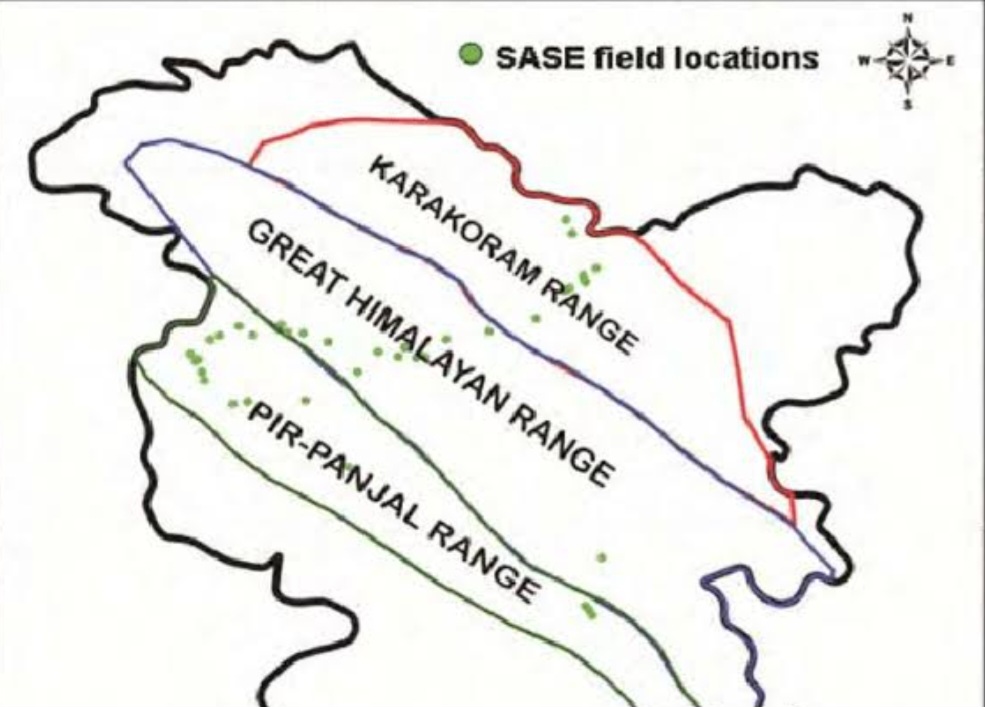By: Lt Col JS Sodhi (Retd), Editor, GSDN

Three major terrorist attacks in the Rajouri and Poonch districts of Jammu & Kashmir have shown that the new battleground for the Indian Army’s war on terror on the Jihadis operating in Jammu & Kashmir with the aid of Pakistan, has shifted from the traditional hotbeds of Baramulla and Sopore in the North of Pir Panjal range (NPPR) to the South of Pir Panjal Range (SPPR).
The three major terror attacks were the attack of April 20, 2023 in which five Indian Army soldiers of a Rashtriya Rifles battalion were killed in a vehicular ambush in Bhata Durian in Poonch. The second attack was on May 05, 2023 in which five Parachute Commandos of the elite Special Forces of the Indian Army were killed in Kesari hills of Thanamandi in Rajouri and the third one was on October 03, 2023 in which three soldiers of the Indian Army were injured in a counter insurgency operation in the dense Kalakote forests in Rajouri.
Clearly, the peace that the Rajouri and Poonch districts saw in the last 15 years has been shattered and the Indian Army finds itself in thicker counter insurgency with its troops combating the terrorists in the entire Jammu & Kashmir apart from its deployment against Pakistan on the Line of Control (LOC) and against China on the Line of Actual Control (LAC) in the Indian union territories of Jammu & Kashmir and Ladakh.
The reasons for the shifting landscape of terrorism from NPPR to SPPR can be enumerated as follows-
Geographical Factors – The Rajouri and Poonch regions, situated along the LOC offer a strategic advantage for terrorist activities due to their proximity to the LOC with Pakistan. The rugged terrain and dense forests provide cover and facilitation for infiltrations and terrorist operations.
Security Measures in Kashmir Valley – The enhanced security apparatus and successful counter-terrorism operations in the Kashmir Valley have forced the terrorist networks to seek alternative bases of operation. The Rajouri and Poonch regions present a comparatively softer target, making them attractive for terrorist outfits.
Closing of Passes – All the traditional routes of crossing over to the Kashmir valley from the SPPR are snow covered during the months of December to March. It is a major obstacle in the path of the terrorists to the Kashmir Valley located in NPPR. With the shift in dynamics of SPPR and change in tactics of the terrorists, it is highly likely that the terrorists choose not to cross over to the Kashmir Valley and carry out strikes in the SPPR.
Upcoming General Elections of 2024 – Terrorists often use violence, intimidation and threats to deter candidates, voters, and election officials from participating in the electoral process. This can include targeted attacks on political rallies, party offices and individuals associated with the electoral process. As and when the elections will happen there will be attempts made by the terrorists to further disrupt the peace in the region, which will include increase in terrorist activities.
Changed tactics of terrorists – The traditional form of terrorism is no more in vogue. Changed dynamics has resulted in a changed terrorist who is suave, technically oriented and merges with the crowd and remains unidentifiable by looks and conduct.
Interference with Civilian Life – Terrorism seeks to disrupt the daily lives of civilians and create an atmosphere of fear. Shifting the focus to regions like Rajouri and Poonch allows terrorists to achieve this objective while avoiding heavily guarded areas.
Implications of terrorists shifting base to SPPR
Increased Threat to Civilian Population – The shift places a higher risk on civilian populations in the Rajouri and Poonch regions. These areas are less accustomed to the regular presence of terrorism, potentially making them more vulnerable to attacks.
Challenges for Security Forces – The changing dynamics pose new challenges for security forces. They have to adapt their strategies and operations to effectively counter the rising threat in these areas while maintaining stability in the Kashmir Valley.
Economic Impact – Terrorism negatively impacts local economies by deterring investment and disrupting trade. The shift of terrorism to new regions may hamper economic development in Rajouri and Poonch, hindering progress and prosperity.
The shift of terrorism from the Kashmir Valley to the Rajouri and Poonch regions reflects the adaptability and resilience of terrorist networks. Addressing this shift requires a multi-faceted approach involving not only security measures but also community engagement, intelligence enhancement, and socio-economic development. Every year 50,000-60,000 Indian Army personnel retire. They should be given land at extremely cheap rates so that majority of them settle down in Jammu & Kashmir. This will bring down terrorism significantly as Veterans will aid in a more conducive demography for peace and prosperity. This method has been successfully tried by China and Israel. By understanding the changing dynamics and taking proactive measures, a more secure and prosperous Jammu and Kashmir region can be worked towards to.
The Northern Command and the White Knight Corps of the Indian Army are doing a phenomenal task in curbing and controlling terrorism in the SPPR. Though faced with immense challenges and complexities, the Northern Command and the White Knight Corps are working day and night to ensure that peace and prosperity reigns supreme once again in SPPR.

